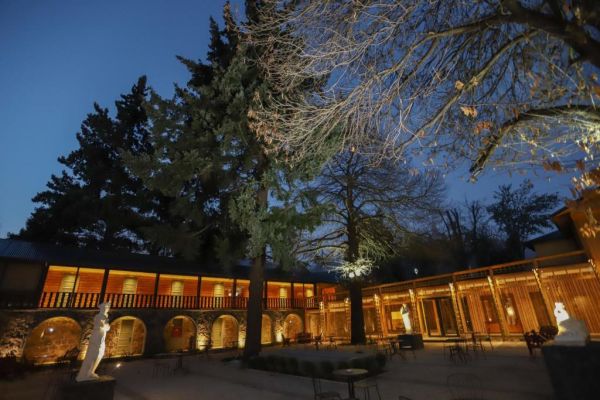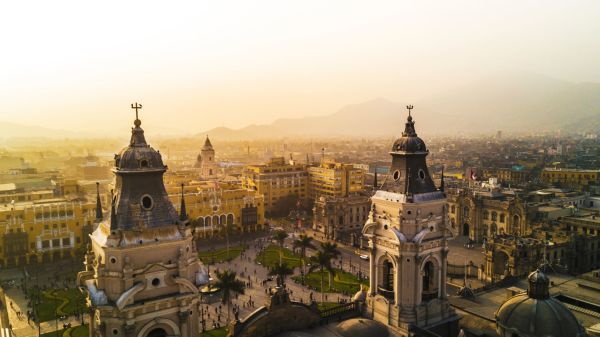Cultural norms you should know if you’re traveling to the Middle East

Traveling to the Middle East is immersing yourself in a fascinating region where ancient history , monumental architecture , and hospitality intertwine with deeply rooted traditions that travelers should know, especially if they plan to discover this part of the world, promoting conscious, respectful, and enriching tourism .
To fully enjoy the experience, it is essential to know and respect certain cultural norms that, although they may seem foreign to the eyes of a Western tourist , are fundamental in the daily life of countries such as Qatar , Israel , Jordan , the United Arab Emirates , Saudi Arabia or Lebanon .
Clothing in the Middle East
In most Middle Eastern countries, modest dress is not only a cultural norm but also a sign of respect for local customs . While dress codes may vary by country and city, a general rule is to avoid very short, low-cut, or tight-fitting clothing .
In Qatar , Saudi Arabia , and the United Arab Emirates , women are expected to cover their shoulders and knees , especially in public spaces . In Saudi Arabia , although wearing the abaya (long robe) is no longer mandatory, many foreign women choose to wear it as a sign of respect. Men should also avoid shorts and sleeveless shirts .
In countries like Jordan or Egypt , there is more flexibility in tourist areas , but in towns and religious sites, it is advisable to dress more modestly . Similarly, in Israel , dress is more liberal , especially in Tel Aviv or Haifa , although if visiting Jerusalem or religious sites such as the Western Wall or Christian churches , it is important to dress appropriately .

Religion and behavior in sacred spaces
Religion plays a central role in Middle Eastern life, whether it be Islam , Judaism , or Christianity . Therefore, respect in places of worship is an unbreakable rule. Furthermore, during the holy month of Ramadan in Muslim countries, it is crucial not to eat, drink, or smoke in public during fasting hours, out of respect for those observing it.
For example, in Muslim mosques , both men and women must remove their shoes before entering. Women must cover their heads , and in some mosques they are not allowed access to certain areas.
Meanwhile, in ancient Christian churches of the Middle East, modest dress and quiet, respectful behavior are also expected.
In Jewish holy sites , such as the Western Wall , men must cover their heads with a kippah (although some may go unnoticed, it is recommended to wear one ), and women should avoid tight-fitting or sleeveless clothing .

Physical contact, displays of affection, and relationships
Public displays of affection , such as kissing or hugging between couples, may be considered inappropriate or even offensive in many Middle Eastern countries.
In the United Arab Emirates , Saudi Arabia , and Qatar , kissing in public can lead to anything from disapproving looks to legal penalties . Meanwhile, in Israel and Lebanon , tolerance may be greater, especially in cosmopolitan cities , but discretion is still advisable.
On the other hand, physical contact between people of the same sex , such as holding hands , is common among male friends in some countries and has no sexual connotations, but it should not be interpreted as approval of LGBTQ+ relationships , which may be criminalized or socially frowned upon .
In several Middle Eastern cultures, interactions between men and women who are not related are governed by strict social norms . In Saudi Arabia , for example, gender-segregated spaces still exist, and it is uncommon for a man to greet a woman with a handshake unless there is prior trust. If there is any doubt, it is best to wait for the other person to make the first move .

Photography, hospitality and etiquette in the Middle East
Capturing the beauty of Middle Eastern landscapes, markets, or mosques is tempting, but caution must be exercised when photographing people , especially women .
It is disrespectful to take photographs without consent in countries like Oman , Saudi Arabia , or Iran . Ideally, you should always ask permission with a smile or a gesture. Furthermore, photographing military installations , government buildings , police stations , or airports may be prohibited or lead to legal problems . It's best to avoid it altogether.
On the other hand, if you are fortunate enough to be invited into the home of a local family, prepare to experience one of the most genuine expressions of Middle Eastern culture : hospitality .
Removing your shoes before entering is common practice in many homes. Additionally, it's polite to bring a small gift (sweets, fruit, flowers) for the host.
At the table, wait for the host to begin eating . In some countries, eating with the right hand is the norm, as the left hand is considered unclean. Furthermore, flatly refusing food or hospitality can be interpreted as a slight . A polite but firm thank you is more appropriate if you do not wish to accept.

Rules on alcohol and other substances
Alcohol consumption is regulated or prohibited in many countries in the region. In Saudi Arabia and Kuwait , alcohol is completely prohibited and its possession can lead to severe penalties .
In the United Arab Emirates , alcohol is permitted in hotels and authorized venues , but public intoxication is against the law . Meanwhile, in Israel , Jordan , and Lebanon , consumption is more liberal , although moderation is always recommended, especially in public or religious spaces .
Things to consider for tourism… and business trips
When traveling for business , it's also important to understand cultural norms . Punctuality isn't always strictly enforced in some Arab countries, where personal relationships take precedence over schedules. Patience is key .
Greetings typically include a handshake (softer than in the West), and informal conversation before discussing business is common. In countries likeIsrael , on the other hand, punctuality and candor are highly valued in the workplace.
If you are traveling as a tourist and enter the souks and traditional markets , you should know that in them, haggling is not only allowed , but expected .

The tone of bargaining should always be friendly and humorous . Showing too much interest in a product from the start can raise its price . However, in Qatar or the Emirates , some modern markets already have fixed prices , and haggling may not be common .
You might also be interested in: The best game reserves in South Africa to see animals in just a few days




















